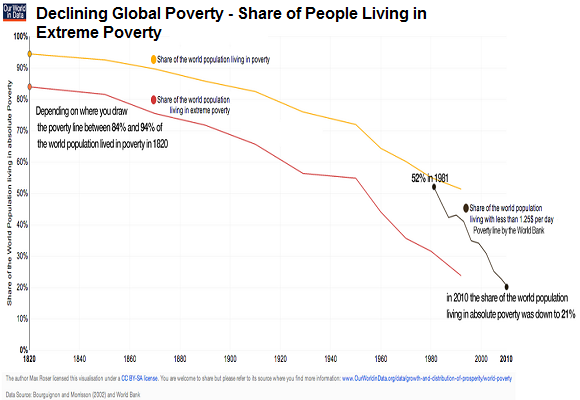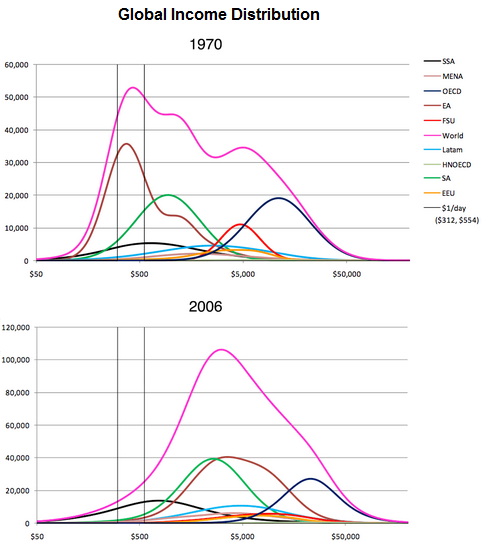A few more thoughts on the income inequality chart I posted earlier. The strange thing about the rising inequality debate is that people often use it to imply that capitalism isn’t working or that the world is becoming a worse place than it once was. But this is extremely misleading. Yes, while domestic inequality is rising the world as a whole is experiencing a much higher living standard than it once did.
To highlight this point look at how rapidly we are currently reducing extreme poverty around the world:
And look at this chart of global income distribution which shows how much higher the distribution of incomes has become:
The thing is, 100 years ago being part of the global “middle class” meant you slaved for food. Today, being part of the global middle class means your cell phone isn’t a smart phone. Make no mistake about it – inequality is a domestic problem that is likely causing some developed economies to grow slower than they otherwise could, but at a global level the world is much better off on the whole. And that’s a point that shouldn’t be lost in this inequality debate.
Source: Max Roser
Mr. Roche is the Founder and Chief Investment Officer of Discipline Funds.Discipline Funds is a low fee financial advisory firm with a focus on helping people be more disciplined with their finances.
He is also the author of Pragmatic Capitalism: What Every Investor Needs to Understand About Money and Finance, Understanding the Modern Monetary System and Understanding Modern Portfolio Construction.


